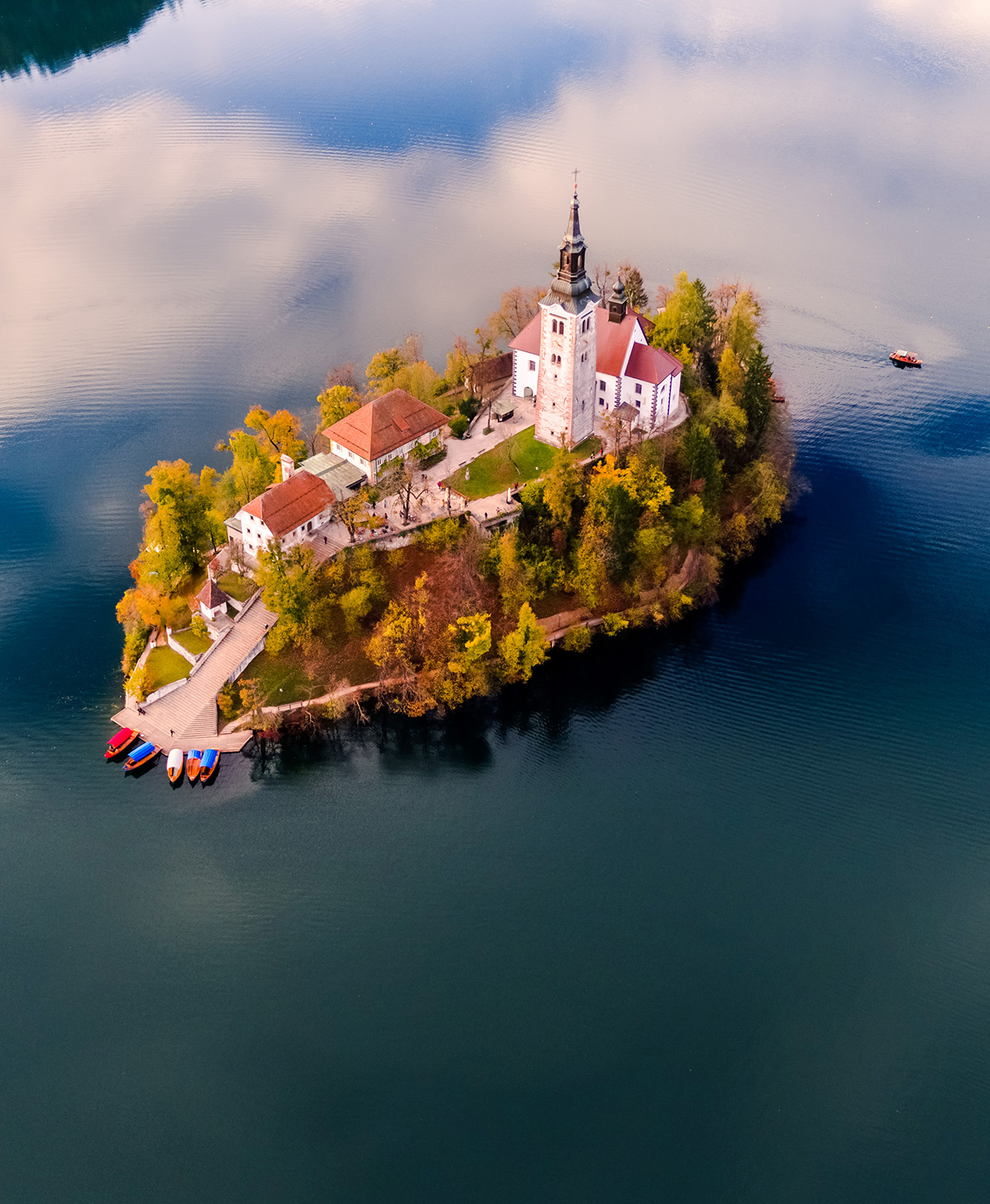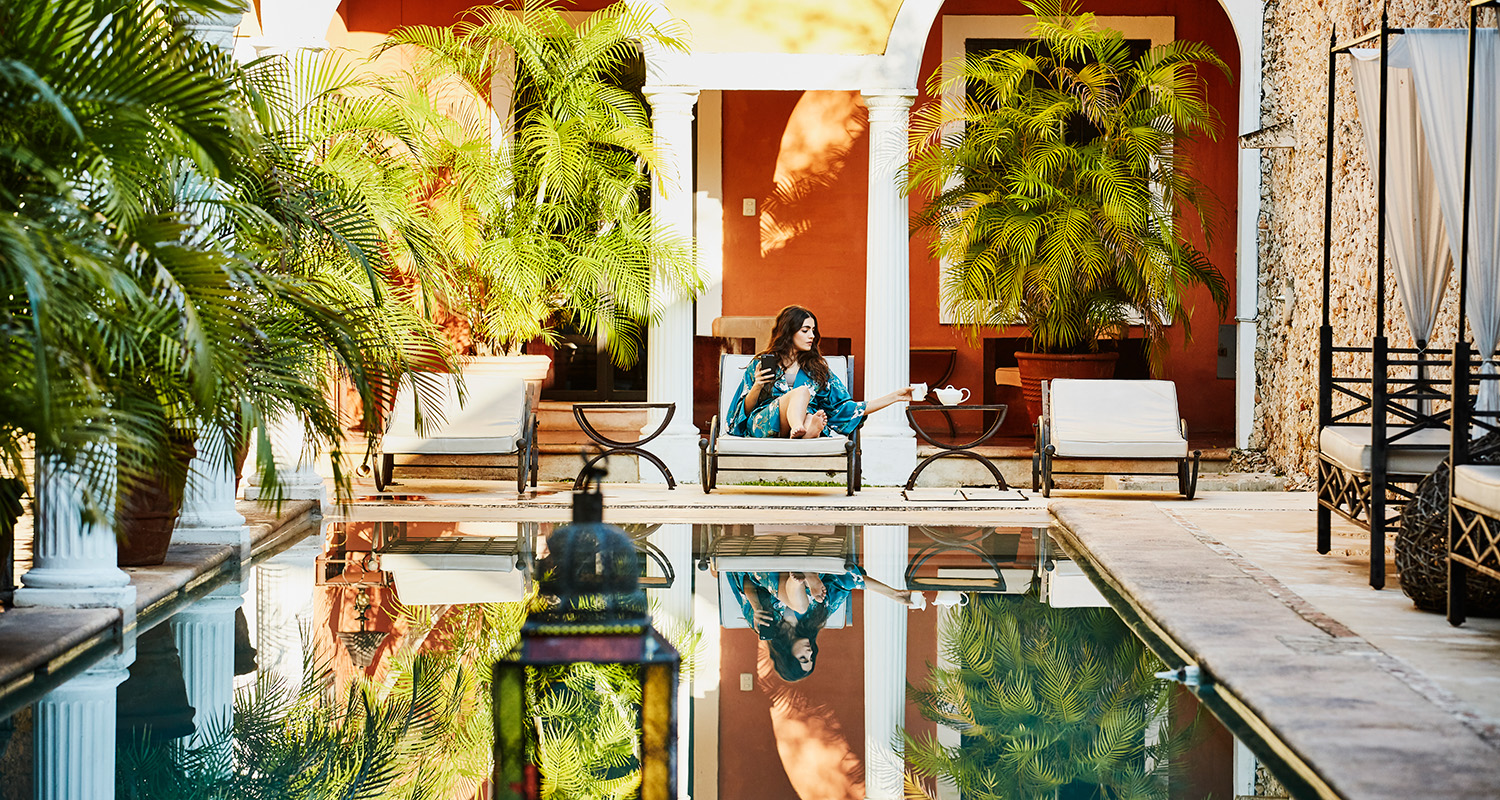
Taking time out: the history of wellness
Spas have a long tradition. A report, plus guideline of the best "Spa Towns of Europe".
24 November 2021
Wellness has a long tradition: it was already known in ancient times. Later on, glamorous places such as Karlsbad or Marienbad attracted the bohemians, who came not only to relax. Even today, spas offer more than simple solutions to health.
mind and body
The term "cure" is derived from the Latin "cura" ("cure, treatment, care"). Natural remedies should serve the regeneration. They were already used in antiquity: the temple of Epidauros is a gigantic spa, sacrifices were made to the god Asclepius and his father Apollo and then indulged in an extensive temple sleep to learn in a dream from the god himself which healing method should be used. Sometimes hypnosis was used to clarify the question of the treatment method, but mostly it was discussions with priests that were supposed to pave the way to the individual cure, which included many things from diets to baths to herbal applications. Cultural activities were always part of the therapy, for which there was a huge theatre and a library. It was already known in ancient times: body and mind belong together. A wellness atmosphere was important, a stimulating mood should help to feel good all around. Spas often also had utopian potential, because people who wanted to try out a different, new way of life came together. Early dropouts, such as in the Monte Verità colony on a hill above Ascona in the Swiss canton of Ticino, celebrated a return to nature at the beginning of the 20th century. "From I to We" was the motto of the hour. Monte Verità was a home for people who wanted to break free from the shackles of society. People wore reform dresses, bathed naked in the sun, practiced eurythmy. Women's emancipation and new forms of education were propagated, vegetarian self-cultivation was tried out, a life without possessions in harmony with nature was striven for. This attracted the bohemians of the time. Artists such as the author Hermann Hesse, the dancer Isadora Duncan and the writer Else Lasker-Schüler found inspiration here. Monte Verità is the best-known dropout project, but there were many of them. In the Slovenian town of Bled, picturesquely situated around a lake, the Swiss Arnold Rikli developed his ideas at the end of the 19th century to alleviate rheumatism, migraines and sleep disorders. He prescribed light and air baths and was therefore also called the sun doctor. In addition, there was a strict vegetarian diet. His spa guests spent their nights in open huts, there were fitness areas where they walked barefoot; much of this still sounds surprisingly modern and up-to-date. At the same time, Rikli was a difficult personality: a radical opponent of vaccination, he also denied his own children approved medical treatments and operations, which brought him much criticism. Conflicts with doctors often ended up in court.
Light and air baths. In the Slovenian spa town of Bled, the Swiss Arnold Rikli prescribed a strict vegetarian diet for his guests. ©GettyImages
Restarting the system
We are currently experiencing a revival and update of old ideas. Anton Kneipp, who regularly bathed in the ice-cold Danube, now has many disciples. Ice swimming is booming; the thrill of getting into an ice-cold natural body of water in winter has gained a wide following during the pandemic when many sports facilities were closed. Ice swimming is the Himalayas for lazy people: maximum effect with minimum effort. You just have to get over yourself, for body and mind it's like rebooting the system. We don't have to reinvent anything, so to speak. Even the term wellness has a long tradition: it appeared as early as 1654 in a monograph by Sir A. Johnson as "Wealnesse" and was translated as "good health". In 1959, the social physician Halbert L. Dunn developed the word "wellness" from the terms "wellbeing" and "fitness". In doing so, he initiated a turnaround from focusing solely on curing illnesses to attaching importance to prevention, so that people do not get sick in the first place. Wellness should be fun, that was the new, beneficial message. Personal responsibility was demanded, getting away for a while was revived as a tourism segment. But wellness is more than just a few days' time out: the aim is to take something back into everyday life with you, to rethink and change your life so that you don't feel like you're in the comic strip "Asterix and the Arvernian Shield": the Gallic chieftain Majestix is sent to a spa - but on his way home he puts on all the weight he had lost.
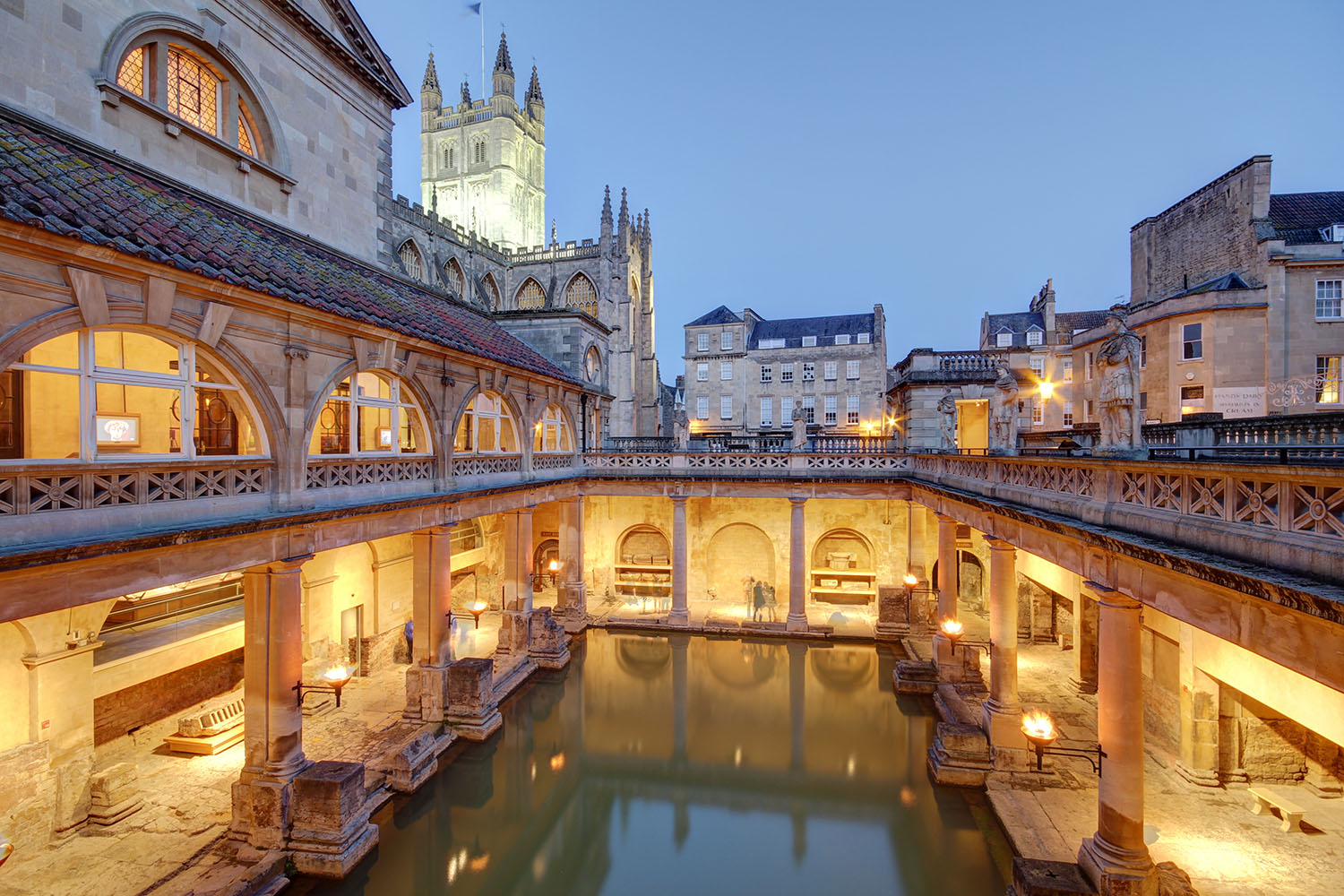
Restarting the system
We are currently experiencing a revival and update of old ideas. Anton Kneipp, who regularly bathed in the ice-cold Danube, now has many disciples. Ice swimming is booming; the thrill of getting into an ice-cold natural body of water in winter has gained a wide following during the pandemic when many sports facilities were closed. Ice swimming is the Himalayas for lazy people: maximum effect with minimum effort. You just have to get over yourself, for body and mind it's like rebooting the system. We don't have to reinvent anything, so to speak. Even the term wellness has a long tradition: it appeared as early as 1654 in a monograph by Sir A. Johnson as "Wealnesse" and was translated as "good health". In 1959, the social physician Halbert L. Dunn developed the word "wellness" from the terms "wellbeing" and "fitness". In doing so, he initiated a turnaround from focusing solely on curing illnesses to attaching importance to prevention, so that people do not get sick in the first place. Wellness should be fun, that was the new, beneficial message. Personal responsibility was demanded, getting away for a while was revived as a tourism segment. But wellness is more than just a few days' time out: the aim is to take something back into everyday life with you, to rethink and change your life so that you don't feel like you're in the comic strip "Asterix and the Arvernian Shield": the Gallic chieftain Majestix is sent to a spa - but on his way home he puts on all the weight he had lost.
Best of Spa Towns of Europe
The Unesco Commission recently declared eleven cities to be "Great Spa Towns of Europe". In addition to places like Bath in England, Marienbad (pictured right) in the Czech Republic and Baden-Baden in Germany, the spa town of Baden near Vienna has also joined the illustrious ranks. The Unesco World Heritage designation testifies to the rich culture and history of this tradition in Europe and its importance for tourism.
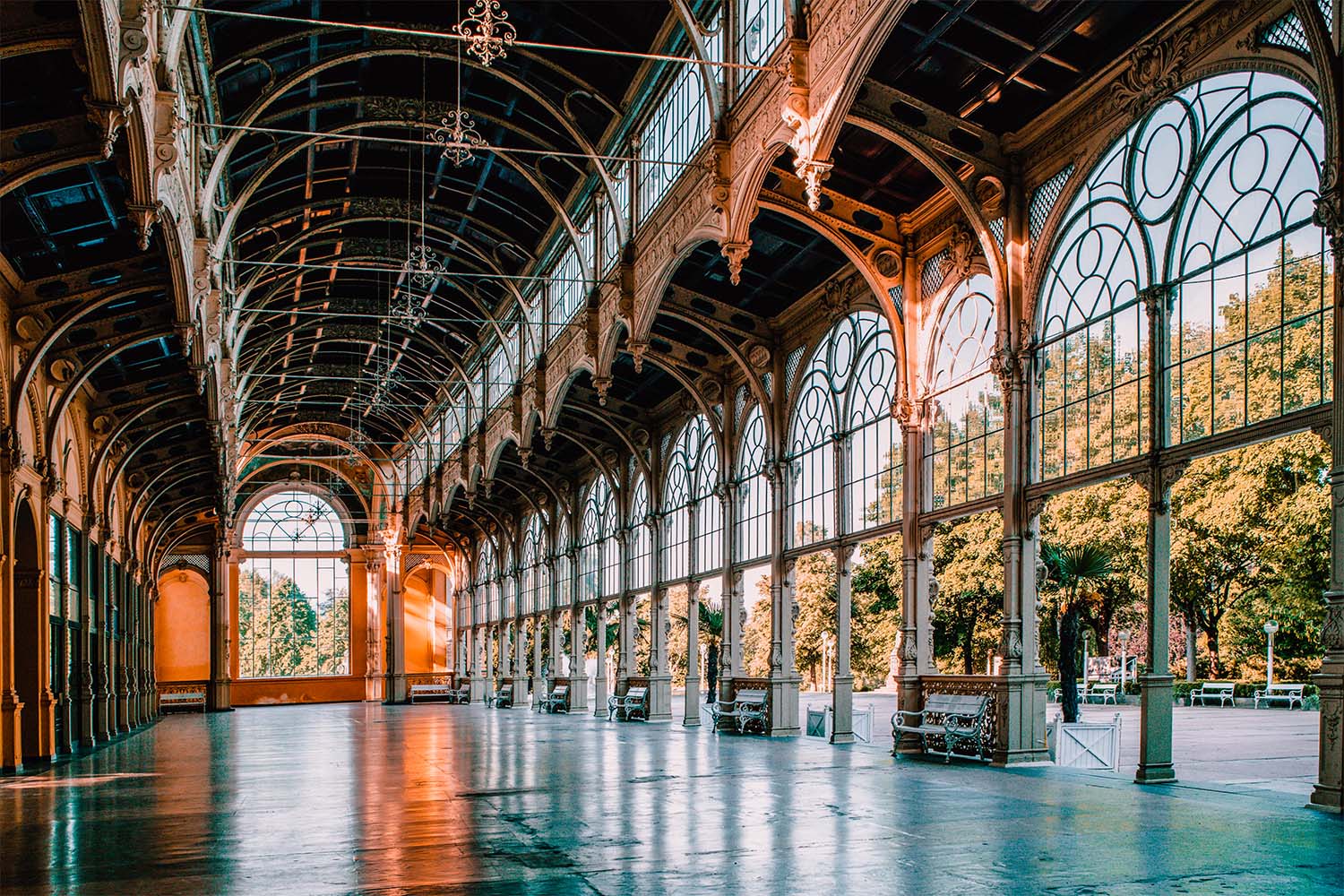
Pleasure trip
According to Unesco, the awarded spa towns represent an exceptional testimony of the European spa phenomenon and describe a "complex urban, social and cultural phenomenon" that was already founded in antiquity and experienced its heyday from 1700 to the 1930s. Moreover, spa towns and their health services are considered catalysts for modern tourism. For even if the main (and obvious) reason for taking the cure was health, these places were also social hubs and anchor points for an international community that liked to have fun. A good example of this is Baden bei Wien, even though the town was not named Austria's most important spa until 1934, after the opening of the casino (picture left). The current success of Baden bei Wien, which can now count itself among the "Great Spa Towns of Europe", is thanks to the town's own initiative - and the association of several places that have been working since 2005 to be included in the World Heritage List. Bravo!
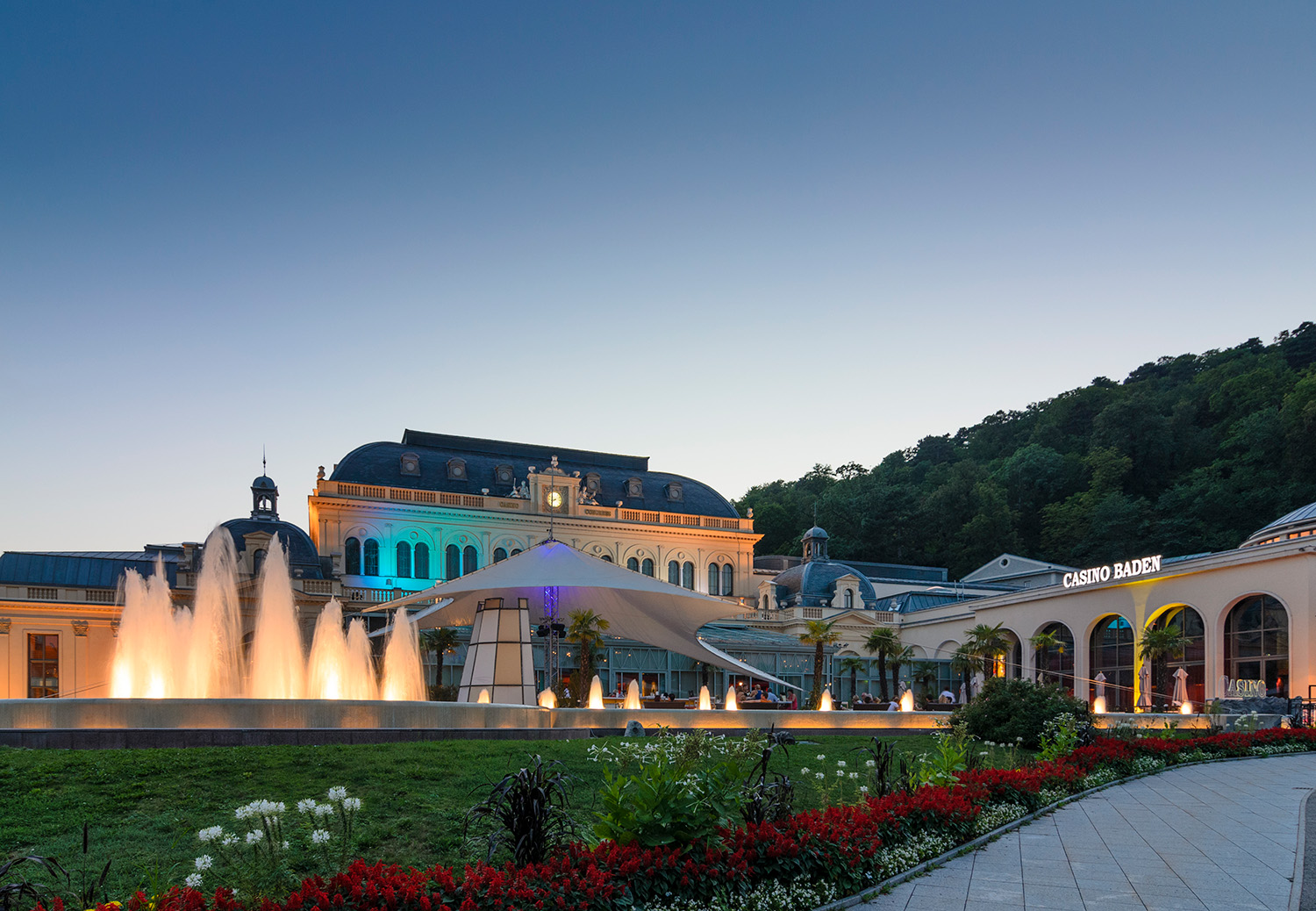
Good to know
1507
In this year the first spa tax was levied in Baden-Baden. In Austria, the first tax was levied in Bad Ischl in 1824.
5
The Kneipp cure has several pillars: it consists of a lifestyle, water, exercise, nutrition and herbal medicine.
350
That is how many spas and health resorts there are in Germany, including about 150 spas and mineral/thermal spas that have one to several healing springs.
2. cent. b.c. Chr.
Underfloor heating has been around since then. The first to have it were the ancient Greeks, who used it to heat their baths. This formed the basis for the Roman thermal baths.
Best spa towns in Europe
- Bath, England
An impressive example of a culture that dates back to ancient times and can still be visited today.
visitbritain.com
- Montecatini Terme, Italy
There are over 200 hotels of all kinds here - spa tourism is the most important economic factor in the region.
toskavista.com
- Vichy, France
Twelve springs rise here, all of which contain carbonic acid and were therefore formerly called "acidulous fountains".
france-voyage.com
- Baden-Baden, Germany
During its heyday in the 19th century, the town was considered the "summer capital of Europe".
baden-baden.de
- Bad Ems, Germany
Among the most famous spa guests were Johann Wolfgang von Goethe, Richard Wagner and Victor Hugo. Various tsars were also welcome guests here.
badems-nassau.info
- Bad Kissingen, Germany
The Bavarian state spa has the oldest spa garden and the largest ensemble of historic spa buildings in Europe.
badkissingen.de
- Marienbad, Czech Republic
People travel here for respiratory, metabolic and kidney problems, tension and pain in the musculoskeletal system - and for the history.
marianskelazne.cz/en
- Karlovy Vary, Czech Republic
Here you will find the Pramen Vřídlo geyser, whose fountain shoots up to twelve metres high.
karlovyvary.cz/en
- Franzensbad, Czech Republic
Here, in the 17th century, medicinal water was shipped in clay jugs for the first time, at that time still known under the name "Egerwasser".
frantiskovylazne.cz/en
- Baden near Vienna, Austria
The warm sulphur springs have been documented since Roman times. In modern times Baden enjoyed great popularity because of its proximity to the capital Vienna.
baden.at
- Spa, Belgium
The birthplace of wellness: from the name of the town of Spa, the generic term spa emerged in English as a synonym for "therapeutic bath" - and is still a synonym for every form of wellness today. And quite rightly so: there are more than 300 springs in and around Spa alone!
villedespa.be

This article appeared in the Falstaff TRAVEL issue SPA Special 2021.

